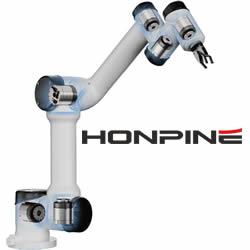This is an outline plan to create and develop an open-source robotics community. If you have some ideas and want to share them, please let me know.
Our Concept of an Open-Source Online Platform for Makers and Educators to Share Their Projects in the Robotics Makers Community
George I Fomitchev | Endurance Robots
Today there are a lot of resources on the Internet, such as: Hackaday, Instructables, GitHub where you can share your technological solutions, engineering projects, and other hokey-pokey you made yourself, with those of your own kind. GitHub is a great resource for open – source developers, but there are no resources for people engaged in robotics.
Today we need a user-friendly online platform where robotics engineers can share their projects on a free basis
For robotics projects it is important to have different sections on a site, such as:
-
BOM
-
Firmware or files that you run on ROS
-
Software app to control
-
Server code (if applicable)
-
Design (STLs, etc.)
-
Assembling process written
-
Assembling process in photo
-
Final products in photo
-
Demo video
A list of makers and contributors might be helpful too, so that you can address them directly if needed. This is what a friendly community is for. No doubt it will help involve more robotics makers.
Forks
An important thing is to have some sort of a fork plan or an upgrade plan for you to add what could or should be upgraded, improved or changed in the original project.
For example,
-
Improve the design
-
Replace servos with stepper motors or add more
-
Add more sonars or IR sensors
-
Replace Arduino with Raspberry Pi or Intel Edison, or Genuino 101
-
Install Altera board Xilinx
-
Run Rash under ROS
-
Make it compatible with all iOS gadgets controlling console
-
Add augmented reality features to control the robot
-
Add lights and different accessories, e.g. an ext. speaker and a microphone
-
Add a mobile device with a smart chatbot
-
Add a robotic arm to grab things
-
Add headlights
-
Add a Kinect or RealSence camera for gesture detection
-
Add algorithms of autonomous driving
-
Create an app with client server support
I believe that a fork section is the one of the most important part where users can share their ideas and create their own forks.
Required skills and knowledge
Another thing is having a selection to mark the project depends on required skills for example, beginner in electronic engineering and advanced user of C or C++, then it will attract developers from different spaces. Right now people do not rush to deal with robotics. Many of them think it’s too complicated and requires special knowledge and skills. And that is true. Before you start something you need to have at least some basic knowledge in the field you are going to conquer.
In this case for many projects it would be great for a beginner to add some sort of academic curriculum. We are sure that many colleges would be happy to help with it.
Reviewers can help a lot popularize the idea of the robotics community
It is important to get reviewers into this space so that top bloggers or tech evangelists could test and rank the technology or help establish contacts and partnerships with other streams. For example, they can connect two similar projects together if they see that the makers are actually working on the same problem. It would be very useful for the robotics community.
Peer reviewers like professors from TOP tech colleges could help a lot young students to get an academic feedback about their projects.
Categories
It is worthwhile subdividing the platform material into categories to facilitate the process of searching for projects of interest for makers and developers. Now it’s quite challenging.
For example we can create categories like:
-
Small robots
-
Wheel robots
-
Smart homes
-
Flying drones
-
Etc.
Share Your Personal Experience
Sharing one’s personal experience is a key to successful involvement of students, professors and hobbyists in the robotics community.
A final video of a working project is your key story of success that will impress beginners and will inspire hobbyists and students to start a new project.
A Support Center
A support center should also be very advanced and useful, so if you have software issues you can ask the software people and if you have electronics issues you can direct your question to the electronics professionals. Professional, competent support is very important for any group to become a real community.
Suppliers and components lists
A comprehensive list of components and suppliers in your location will be a very helpful tool to find the best parts needed and order them with just one click. It is absolutely necessary to provide users of the community with this convenient tool, so that they did not spend time surfing the Internet in the search of the compatible components.
For example, if you want to create your own telepresence robot DIY SelfieBot, and you in the US, Naples, Florida, how can I find all electronics in one place to make an order and do not spend a lot of time trying to find compatible components?
Hobbyists and makers will be also thankful if they have the information about the places where they can do or have done, for instance, some metalwork, 3D printing, or laser cutting and engraving.
Contributors’ motivation
And the last but not least thing is motivation. What will motivate robotics guys to contribute their projects to the open-source community space? Evidently, it should be something more than just the number of views and likes.
We believe that if the project is really interesting they should be able to sell commercial license on that. It will dramatically increase the amount of people who would like to contribute. It means that open – source project can be used for non commercial purposes of education but in other cases a contributor can sell his commercial license.
Endurance’s momentum
More than 50 US colleges and universities have already expressed their interest in sharing their projects with that kind of the online platform.
Being a panelist speaker on the Annual IEEE Connecticut Conference on Industrial Electronics, Technology & Automation (CT-IETA 2016) October 14 - 15, 2016 http://ctieta.org/keynote.html we plan to talk about this platform with our guests and panelists.
We also have one free spot for a panelist speaker, so if you would like to join us, please let me know ASAP. The topic is: Robots in Education – Benefits and Open-Source Technologies for Educators.
The current Endurance’s activities are described here: http://endurancerobots.com/endurance-will-present-diy-selfiebot-robots-rash-1-rash-2-rash-3-and-5-6w-diode-lasers-on-the-following-events-in-september-and-october/
That is an outline plan to create and develop an open-source robotics community. If you have some ideas and want to share them, please let me know.
 George I Fomitchev
George I Fomitchev
CEO and Founder of Endurance
Entrepreneur. Maker. Futurist.
Panelist speaker on Annual IEEE Connecticut Conference on Industrial Electronics, Technology & Automation
(CT-IETA 2016) October 14 - 15, 2016 ctieta.org/keynote.html
http://EnduranceRobots.com
http://EnduranceLasers.com
The content & opinions in this article are the author’s and do not necessarily represent the views of RoboticsTomorrow
Featured Product

